Iran, Russia, Turkey resume Syria peace talks in Sochi
Iran, Russia and Turkey have launched a new round of negotiations in the Astana format between Syrian government delegates and representatives of foreign-sponsored opposition groups, months after the intra-Syrian peace talks were called off amid the coronavirus pandemic.
The 15th meeting of senior experts from the three guarantor nations of the Syrian peace process kicked off in Russia's Black Sea resort city of Sochi on Tuesday, with a UN delegation in attendance.
The two-day international meeting will reportedly discuss issues such as Syria’s Constitutional Committee, the Damascus government’s sovereignty over the entire Syrian territories, reconstruction of war-ravaged areas, return of Syrian refugees, exchange of prisoners as well as ways to counter US and Western sanctions.
The talks are known as the Astana process, because Kazakhstan’s capital, Nur-Sultan, formerly called Astana, originally hosted the meetings.
The Astana talks resulted in two agreements.
A first deal was signed in Kazakhstan’s capital, arranging for the creation of de-escalation zones across Syria, including in parts of Idlib. The second one that came about in Sochi allowed Ankara to bring in a small number of forces to man the observation posts to reinforce de-escalation.
While the two deals have helped significantly reduce fighting in Syria, the conflict has not entirely ended, due in large part to Turkish failure to separate terrorists from what it calls “moderate” opposition groups in Idlib and Ankara’s dispatch of thousands of troops and heavy military hardware into the Syrian province to back the militants.
“Iran, Russia and Turkey are determined to strengthen cooperation within the Astana format in order to establish and preserve peace and stability in Syria,” Iran’s Ambassador to Moscow Kazem Jalali said.
Russia's special envoy on Syria, Alexander Lavrentiev, also said participants in Syria peace talks in Sochi are considering ways to counter the adverse consequences of unilateral US and Western sanctions against Syria.
“Syria is currently experiencing severe political and economic isolation, which makes it difficult for the negotiation process to proceed on an equal footing. Therefore, we are discussing mechanisms to confront US and Western states’ sanctions against Syria,” he said.
US turns down Russia’s invitation to attend Sochi meeting
Meanwhile, the United States has declined Russia’s invitation to send a representative to the meeting.
“Russia sent an invitation to the United States to participate in the Sochi talks, but Washington rejected the offer,” Lavrentiev noted.
Russia emphasizes Tehran-Moscow cooperation to resolve the Syrian crisis
Separately, the Iranian delegation to the Sochi meeting, led by Ali Asghar Khaji, the Iranian foreign minister's senior assistant for political affairs, held meetings with a number of delegations on the sidelines of the Syria peace talks.
During a meeting with Russian delegates, Khaji briefed them on his recent visit to Damascus, and stressed the need to fight terrorism in Syria, and to help advance the country's political process within the framework of the Constitutional Committee.
Lavrentiev, for his part, stressed the need for greater cooperation and coordination between Tehran and Moscow to resolve the Syrian conflict.
Iran voices support for UN special envoy for Syria
The Iranian delegation also met with UN representatives, headed by the United Nations Special Envoy for Syria Geir Pedersen.

During the meeting, the two sides discussed in detail the Syrian political process, and underlined the need for the work of the Constitutional Committee in the conflict-ridden Arab nation.
Khaji emphasized Iran's support for the political settlement of the Syrian crisis and the continuation of the Constitutional Committee's activities, and expressed the Islamic Republic’s solid support for the UN special envoy for Syria.
Pederson, for his part, appreciated Iran’s supportive role, and stressed the need for trust between the Syrian parties and international actors, as well as the need for a comprehensive approach in order to solve the Syrian crisis.
Iran, Turkey insist no military solution to Syria crisis
Furthermore, Iranian and Turkish delegations insisted that there could be no military solution to the Syrian conflict.
The two sides discussed the latest situation on the ground, including developments in the northern province of Idlib as well as the political process in Syria, emphasizing the work of the Constitutional Committee.

The Iranian and Turkish delegates also stressed that there could be no military solution to the Syrian conflict, calling for a political settlement.
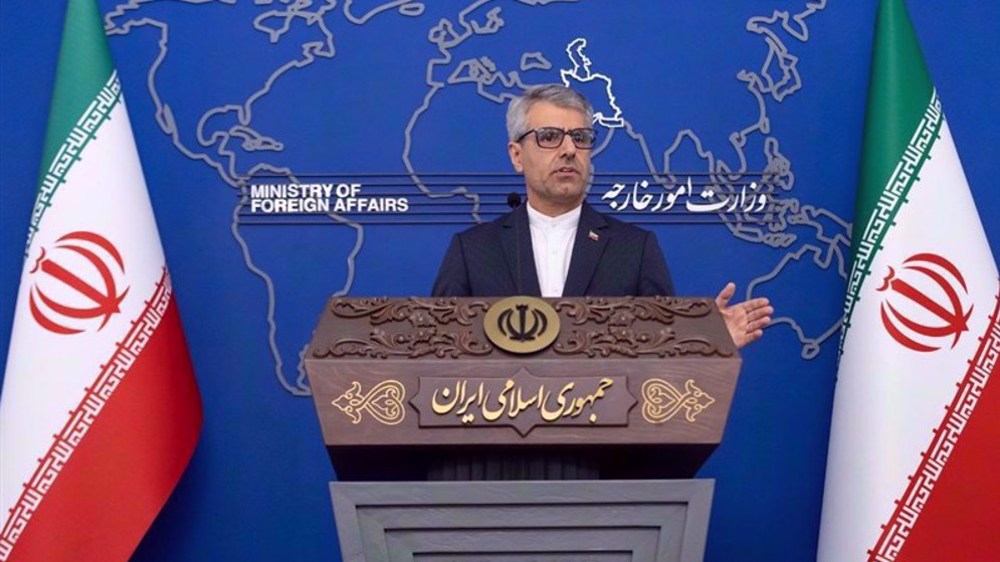
Iran remains steadfast in its ‘principled positions,’ says Foreign Ministry
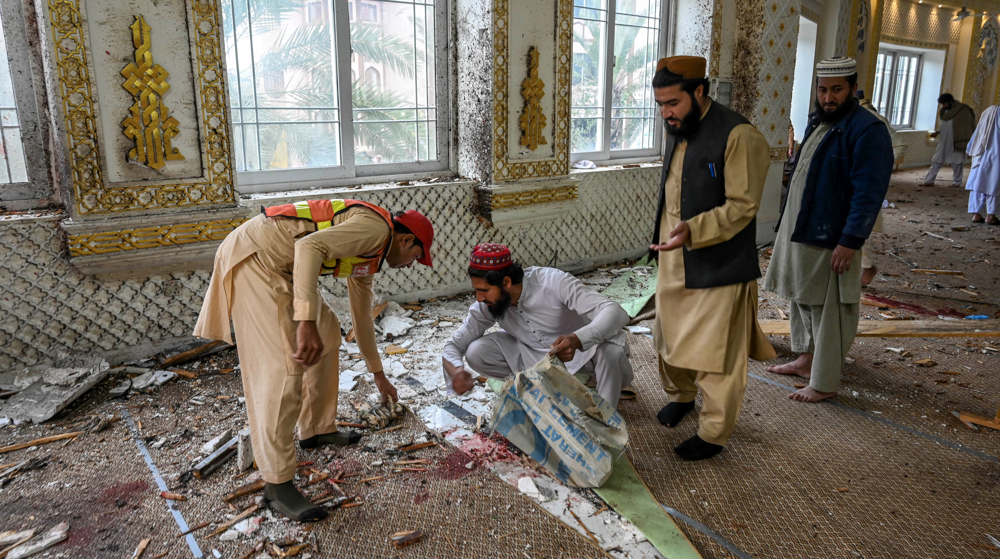
Iran condemns deadly bombing in Pakistan, stresses regional unity to fight terror
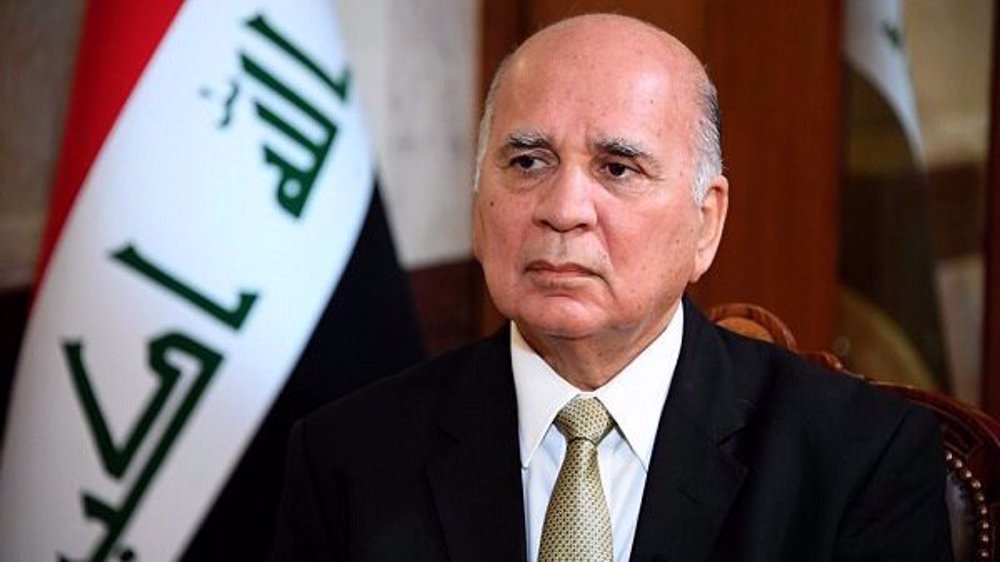
Iraq asserts commitment to security agreement with Iran
Zelensky should apologize for ‘fiasco’ with Trump: US state secretary
Houthi: Yemen ready to attack Israel if Gaza truce breaks down
VIDEO | Lost classrooms, lost childhoods: Jenin’s children struggle for education
VIDEO | Palestinians ramain steadfast despite Israel’s onslaught
VIDEO | Press TV's news headlines
Iran ready to strengthen ties with UAE based on ‘mutual interests’: Deputy FM
VIDEO | A slap in the face of imperialism
Iran remains steadfast in its ‘principled positions,’ says Foreign Ministry


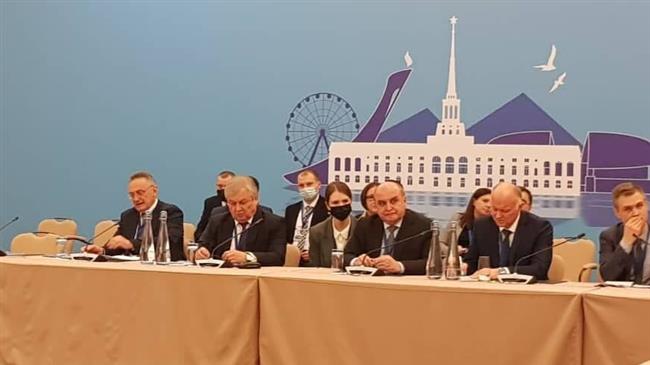






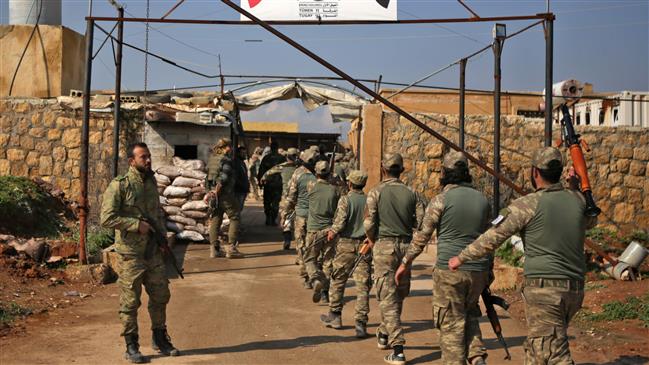
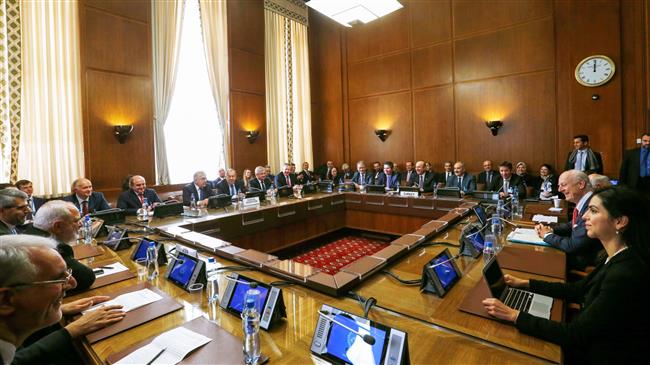
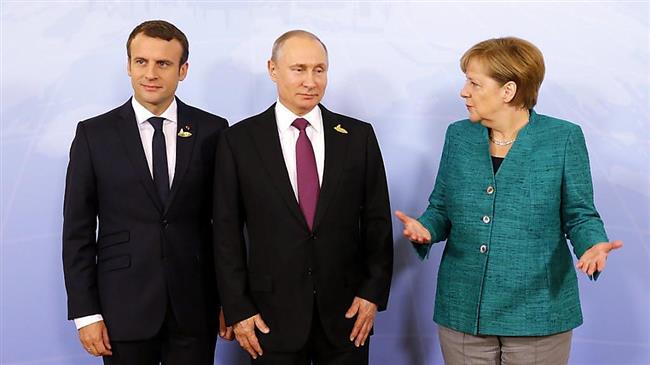
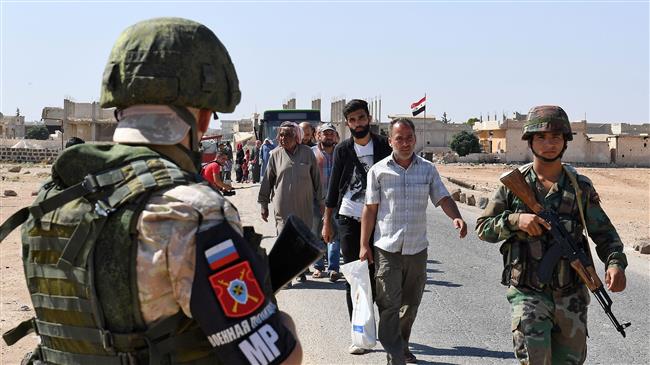
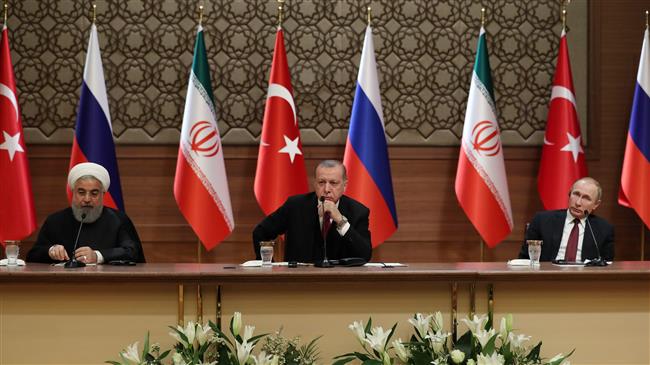
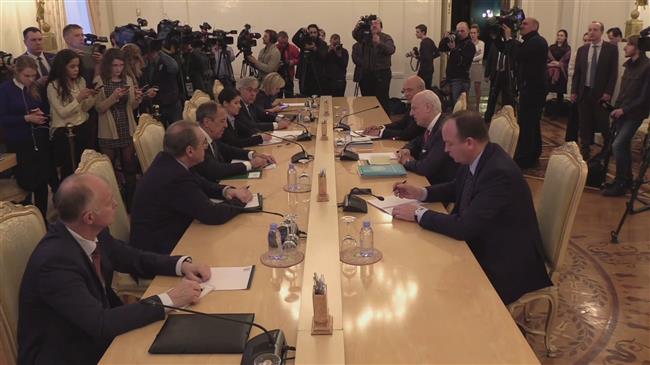

 This makes it easy to access the Press TV website
This makes it easy to access the Press TV website